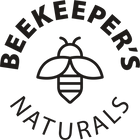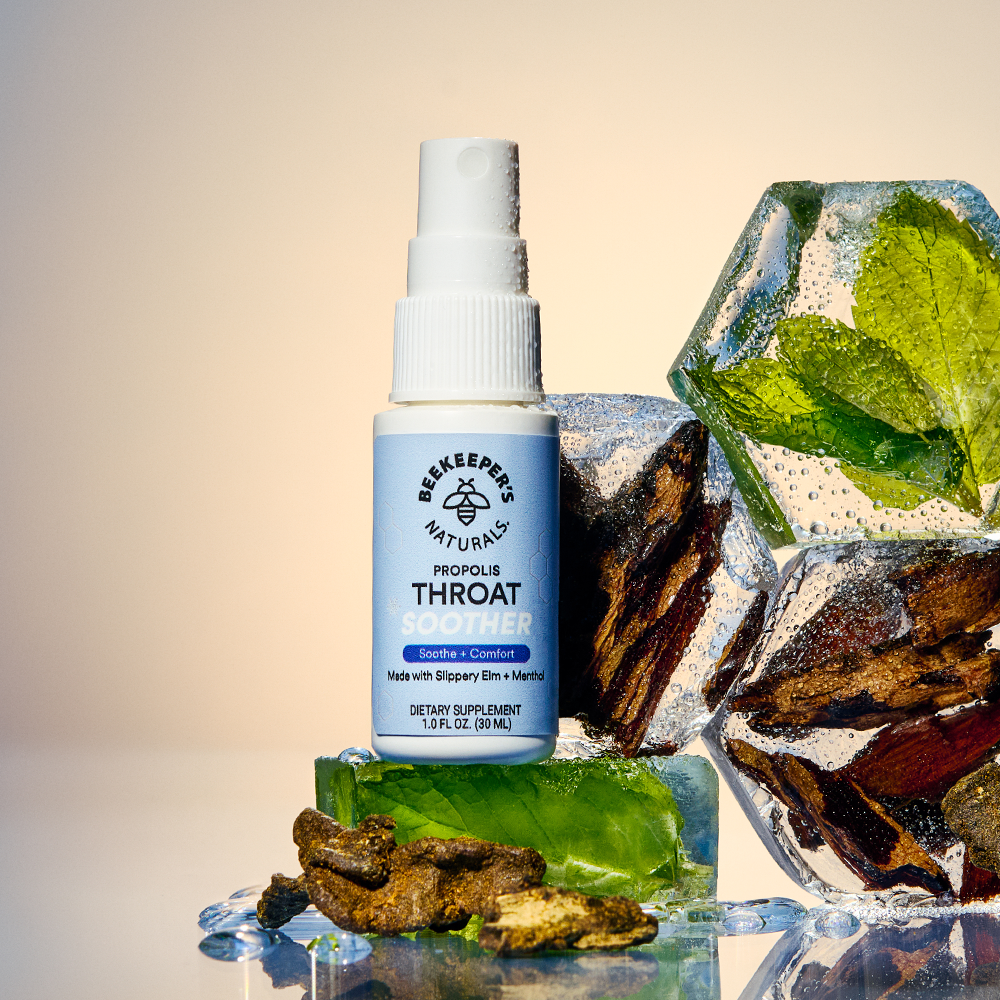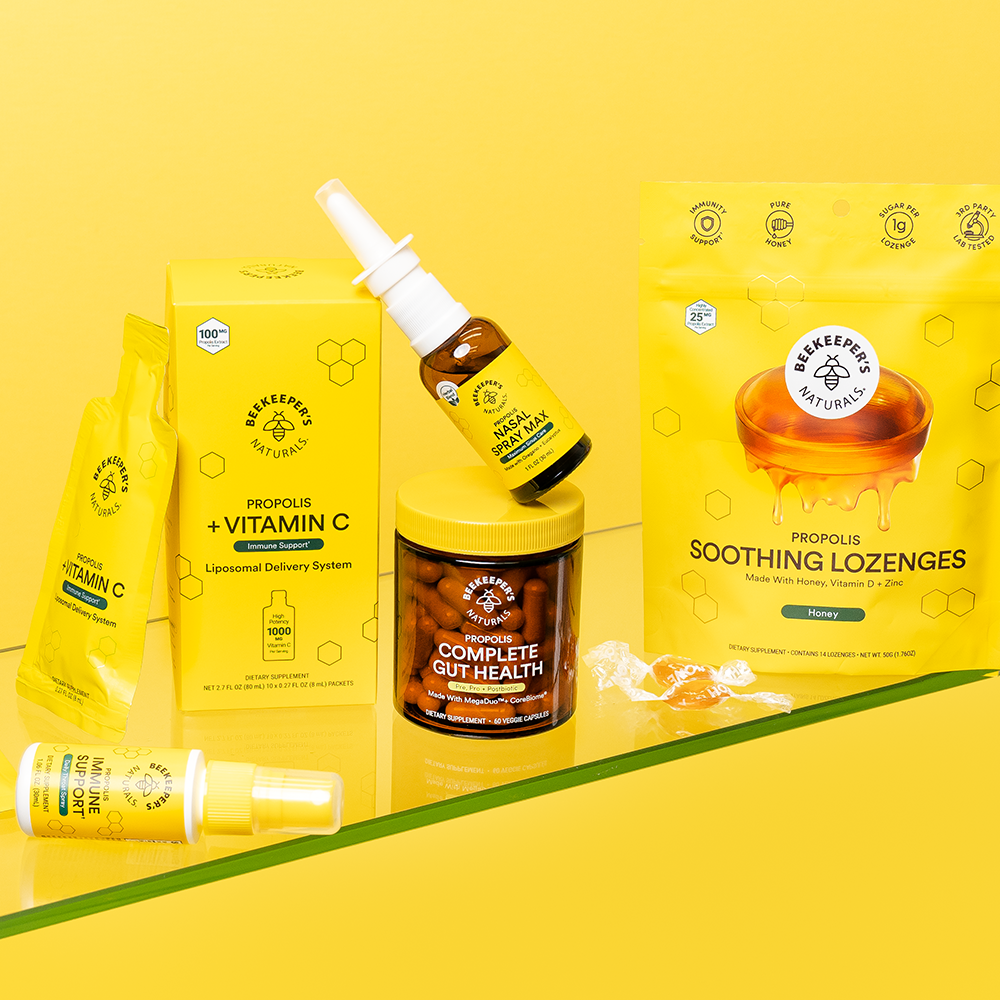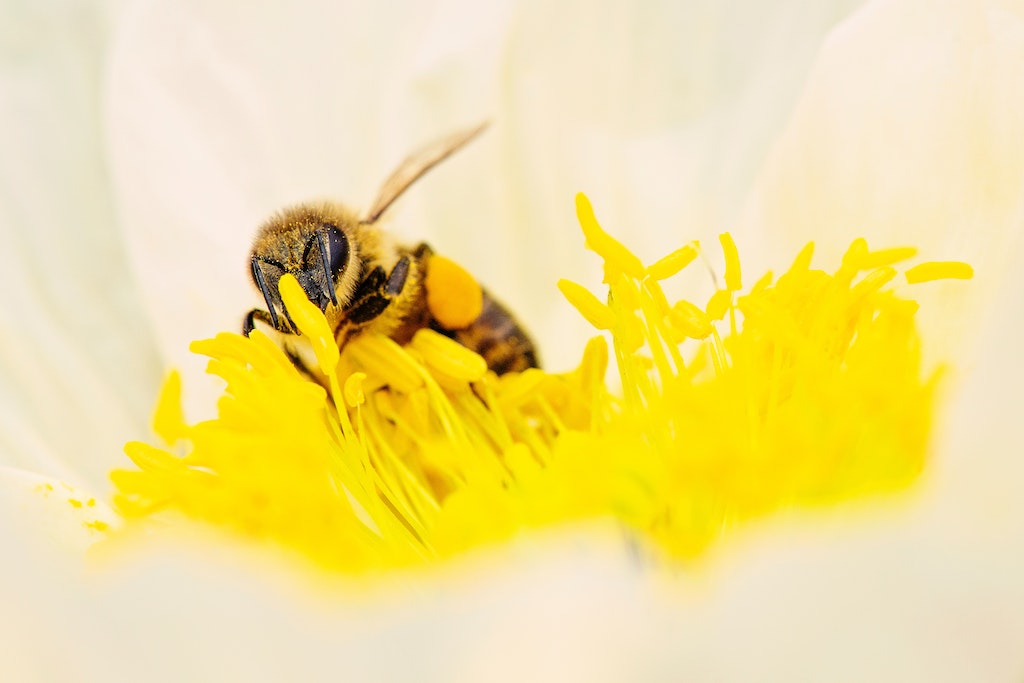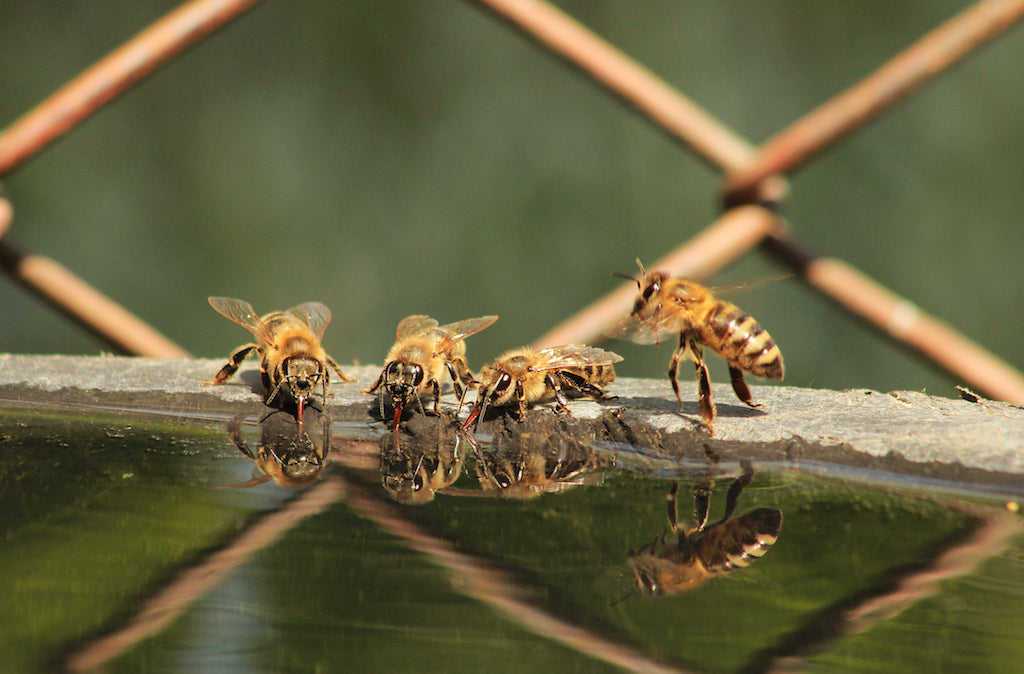What surprised you the most in your first year as a beekeeper?
They survived! Without treatment! They survived for many years, in fact. Also, I was very surprised by how calm they were, even without smoke. I got really used to beekeeping in skirts as a result. Skirts are just more comfortable on hot summer days.Tell us about your most memorable experience with your bees in your first year.
It has to be the way the bees came to me. I was in so much grief after my miscarriage. My body was very weak after surgery. I buried my placenta under the empty hive and asked for bees to come to me. A couple days later I got a swarm call. I wasn’t even on a swarm list. Someone just knew I was looking. They were a huge swarm in the shape of a heart. There was something so incredible about not only catching them, but then introducing them into their hive—watching them joyously accept their new home, fanning their wings and settling in. It was so moving. It was a cool day in April and the heat radiating off their bodies was astounding. I fell in love immediately.
Tell us three lessons that you’ve learned from the bees.
1. The power of listening. When I get still and listen to the bees, as well as my own body (vs my intellect), the bees reveal what they need and who they are.
2. To allow death. This is a hard one. We are in such a battle to save the species. We are experiencing the Anthropocene. But the bees have also taught me to value life in its fullness, whether a hive lasts a season, a year, or ten years. Beekeeping means you have to witness and confront death again and again. It’s heartbreaking to lose hives, but it teaches us about our own fears of death. Sometimes bees die because of human intervention, which is tragic, but sometimes they are simply a weak colony on a cold year, or a drought year, or a year with forest fires, and no matter what you do they don’t survive. It’s part of life. That being said, I think seeing the amount of death within the bee world is also a serious wake up call, requiring us to actually witness the results of climate change and human impact. They are showing us. They are the clarion call.
3. Less is more. The more I’ve intervened with my hives, the weaker they’ve become. The bees have taught me to look to nature, to follow the wild bees. To be involved, but not too involved. They’re teaching me how to unlearn industrial era thinking. The less time opening the hive, the better. I spend more time chatting with them at the entrance, planting flowers, and listening to the hum.
What’s your favorite thing about being a beekeeper?
The total focus that comes over me when I’m with my bees. It’s a state of wonder that has never ceased to calm my mind and nervous system. I feel so much love for these little creatures. When you are inside a hive or watching from the entrance, you are encountering a highly intelligent super-organism. I don’t think our brains can fully comprehend what that means. It’s a powerful reverie.How has working closely with bees changed your perception of the world around us?
This is why I’m a beekeeper. I see bees as a bridge species. They are never truly domesticated—they aren’t like dogs and cats. Bees can live in trees or manmade boxes, but no matter where we put them, they’re always a little wild. They remind us of our untamed, wild, barefoot selves. They live between darkness and light. They make love to flowers. They are essential to the fabric of our lives. You can’t be a beekeeper and not become aware of the flowering world around you. You start to notice the weather more, then the seasons, then the seasonal arcs from year to year. You slow down. You notice the difference in the garden—you notice more beauty. You notice more imbalance, too, like how the blackberries used to come in July and now they come in June and dry up earlier. As a result, for me at least, I feel much more tied to the inhale and exhale of life. I feel much more invested in the day-to-day struggles of climate change, habitat loss, pesticide use, and species decline. I think beekeeping has made me acutely aware of the preciousness of this earth and its inhabitants. It has certainly made me more curious. Every petal tells a story.
In North America, there is a major issue in finding and maintaining clean space for the bees. A lot of the farmland is bought up by large-scale producers and practices like monocropping and heavy pesticide usage has really affected our ecosystem. Have you been personally affected by these practices in your surrounding area?
Absolutely. I have strong, angry thoughts on this matter. I have witnessed swarms die from being sprayed and I have watched hives decline in places with much pasture land. Some of the best ways we can come together are projects like pesticide-free neighborhoods or pollinator highways. Look at The Honey Highway project headed by Deborah Post in The Netherlands.Do you use any bee products for health purposes?
I use propolis tinctures for wounds as well—propolis is magic! I use pollen for vitality, preparing for pregnancy (fingers crossed), and digestion. I use honey for burns, coughs, skincare, colds and so on. I sometimes eat a tablespoon of honey before bed to help with restful sleep. People think it’s weird because honey energizes you, but I’ve found it very helpful for good quality sleep.
